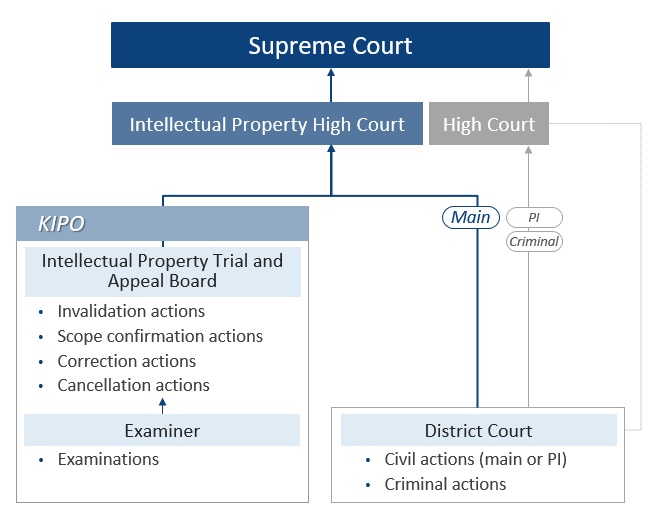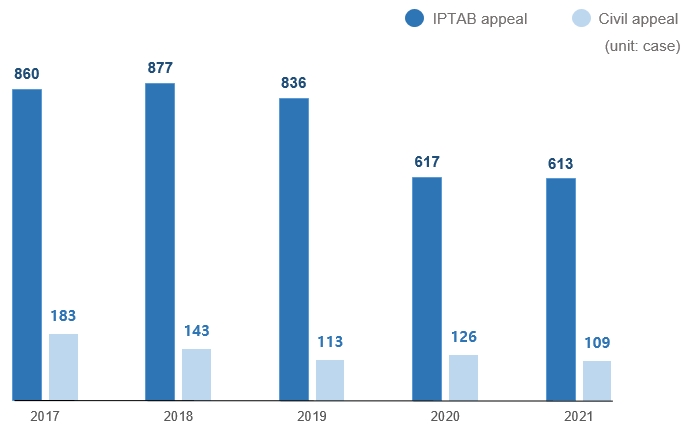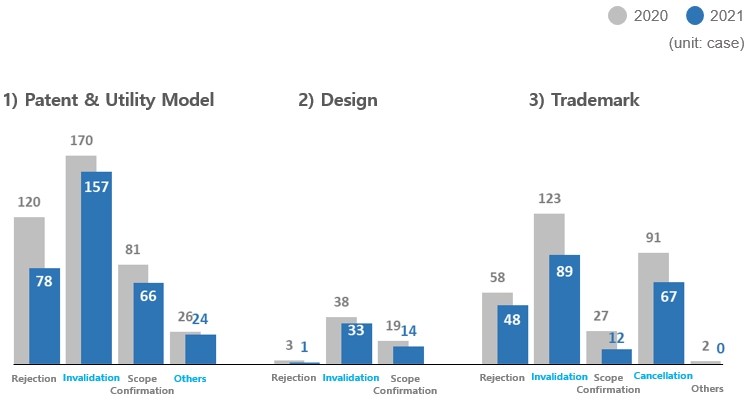The English name for the specialized appellate court for intellectual property cases in Korea, formerly known as the Patent Court, was officially changed to the "Intellectual Property High Court" ("IP High Court") on February 16, 2023, by order of the Office of the Director of International Affairs. Interestingly, the Korean name for the court remains the same for now (and literally means "Patent Court" in English), as no decision to revise the Korean name has yet been taken. The new English name more accurately reflects the jurisdiction of the court, which has authority over all types of IP cases, not just patent cases.
The IP High Court was originally established in 1998 to consolidate appeals of most intellectual property cases in Korea into a single court with experience handling IP issues, and is located in the city of Daejeon where the Korean Intellectual Property Office is also situated. The court comprises a total of 18 judges, each of whom previously must have served as a judge for at least 12 years, and each appeal case is heard by a panel of three judges from the court.
Per the following diagram, the IP High Court is an appellate-level court with exclusive jurisdiction over Intellectual Property Trial and Appeal Board (IPTAB) appeals, and over appeals of civil IP infringement cases other than preliminary injunction actions.

Most of the appeals handled by the IP High Court are appeals of IPTAB cases, rather than civil infringement cases, as illustrated by the chart below.

As with most other civil litigation cases in Korea, cases involving IP disputes between parties (i.e., infringement, invalidation, cancellation, and scope confirmation cases) are heard de novo by the IP High Court, meaning the court can consider new evidence and arguments in the appeal even if they were not asserted at the district court level. However, in cases involving appeals of IP application rejections, the court's function is limited to assessing whether KIPO's grounds for rejection are legally valid.
The following chart provides more detail on IPTAB appeal cases that were handled by the IP High Court in 2020 and 2021, and shows that appeals of invalidation actions were the most common type of IPTAB appeal over this period.

Related Topics







